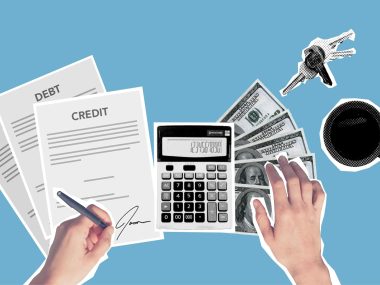In today’s financial landscape, acquiring a personal loan can be a strategic move to manage unexpected expenses, consolidate debt, or fund a large purchase. Understanding how to apply for a personal loan is the first step towards securing financial aid that aligns with your needs.
This blog post is dedicated to unraveling the application process’s mystique and providing practical, actionable advice.
What Are The Basic Requirements For Applying For A Personal Loan?
Lenders will scrutinize your application based on several standard criteria when considering a personal loan.
Proof of Identity: To protect against fraud, lenders require a form of identification. This helps verify that you are indeed the person requesting the loan.
Income Verification: Demonstrating your ability to repay the loan is paramount. Lenders will analyze your income sources to ensure the loan is within your means.
Credit History: Your financial past tells a story; lenders are avid readers. A good credit score can testify to your reliability as a borrower.
Employment Verification: A steady job translates to a stable income, which reassures lenders of regular loan repayments.
Other Documentation: Some lenders may have unique requirements, and it’s vital to be prepared for anything.
Here’s a more detailed elaboration:
- Valid government-issued identification is indispensable. This could be a driver’s license, passport, or Social Security number.
- Recent pay stubs, tax returns, or bank statements typically substantiate evidence of stable income.
- Your credit score and credit report shed light on your previous financial behaviors and debt management.
- Employment letters, pay stubs, or even bank statements are necessary for proof of employment or a steady income source.
- Depending on your lender, additional documents such as utility bills for proof of residence or personal references may also be part of the process.
Key points to remember:
- Always have your government-issued ID ready and valid.
- Keep your financial documents like pay stubs and tax returns up to date and accessible.
- Understand your credit score by regularly checking it through authorized platforms.
- Maintain a folder with employment and residence proof that is easily accessible.
Meeting the basic requirements is about preparation and attention to detail. Ensure all your documents reflect the most current and accurate information about your financial state.
How Do I Start The Application Process For A Personal Loan?
Starting the application for a personal loan seems daunting, but when broken down, it’s quite straightforward.
Assessing your financial situation is like laying the foundation for a house. It is vital to ensure everything you build afterwards stands firm.
Researching and comparing different lenders is like shopping for the best deal. It ensures you don’t settle for less when you could have more.
Gathering necessary documentation is akin to packing for a trip. It ensures a smooth ride without any last-minute surprises.
Completing the loan application form accurately is the bridge between you and your potential loan; a single error could weaken that bridge.
Submit your application and wait for approval, much like sending out a raven and waiting for its return with news.
To elaborate:
- Begin by checking your credit score; knowing where you stand credit-wise is crucial.
- Determine the loan amount you need and realistically assess your ability to repay it.
- Compare lenders, including banks, credit unions, and online platforms, to find favorable rates and terms.
- Have your documentation, such as proof of income and identification, ready for submission.
- Fill out the lender’s application form completely and accurately, whether online or in person.
- Once submitted, patience is key as you await the lender’s decision.
The essentials to take away are:
- Know your credit score and understand its implications.
- Be realistic about how much you need to borrow and can afford to repay.
- Do thorough research on potential lenders and their terms.
- A complete and accurate application is your best advocate.
In essence, starting the loan application process requires introspection, research, and execution. With careful planning, you can initiate the process confidently.
What Documents Do I Need To Submit When Applying For A Personal Loan?
The rigorous nature of applying for a personal loan means being well-prepared with various documents.
Proof of identity helps lenders eliminate any uncertainty around who is applying for the loan.
Proof of income gives lenders peace of mind about your financial status and ability to repay the loan.
Proof of residence affirms that you are settled and stable in your living situation.
Credit history is like your financial autobiography that lenders read carefully.
Employment verification assures lenders that you have a continual source of income to make repayments.
In a more detailed light:
- Have a government-issued photo ID ready to present.
- Your lender will likely want recent pay stubs, tax returns, or bank statements as proof of income.
- A utility bill or lease agreement can serve as proof of residence.
- Lenders may request permission to check your credit score and report.
- Present a letter from your employer or other documents verifying employment for employment verification.
Key documents include:
- Your passport, driver’s license, or national ID card.
- Recent pay stubs or tax returns.
- Utility bills or a lease to prove where you live.
- Permission for the lender to check your credit history.
- A confirmation of employment from your employer.
Ultimately, each document you submit paints a clearer picture of your financial reliability and adds to the strength of your application.
How Long Does It Typically Take To Get Approved For A Personal Loan?
As different journeys take varying amounts of time, so does loan approval.
The approval time can vary widely from lender to lender, much like the difference in service between a fast-food restaurant and a fine-dining establishment.
Some online lenders boast rapid approval processes, representing the speed of technology’s impact on traditional banking.
Traditional banks and credit unions may require more time, reminiscent of taking the longer scenic route rather than the highway.
Your personal financial situation plays a substantial role, not unlike how a car’s performance can affect travel time.
To be more precise:
- Typically, approval times range from a few hours to a week.
- Online lenders may offer pre-approval in minutes with funding possible within 24 hours if approved.
- Banks and credit unions often take several days to review and make a decision.
- The credibility of your financial information and the completeness of your application can accelerate or delay the process.
To streamline the process:
- Ensure that your financial and personal information is accurate and complete.
- Make sure you understand the lender’s requirements thoroughly.
- Respond promptly to any requests for additional information.
In sum, the time it takes to get approved for a personal loan can vary, but being prepared can help expedite the process.
Are There Any Tips To Increase My Chances Of Getting Approved For A Personal Loan?
Increasing the likelihood of getting approved for a personal loan can often be attributed to a few key practices.
Check your credit score—it’s the cornerstone of any loan approval process.
Reduce your debt-to-income ratio, analogous to lightening your load before a race to improve speed and agility.
Strengthen your employment history, which can be seen as deepening your roots to ensure stability and growth.
Gather all necessary documentation in advance, much like assembling all the puzzle pieces before starting to put it together.
Apply for the right amount, akin to finding the right tool for the job—excessive or insufficient can hamper efficiency.
Expanding on these points:
- A higher credit score can secure better loan terms and interest rates.
- A lower debt-to-income ratio signals to lenders you’re capable of managing new debt.
- A stable job history reassures lenders of consistent repayment.
- Advance preparation of paperwork can facilitate a smooth application process.
- An appropriate loan amount signifies responsible borrowing.
To ensure your best shot at approval:
- Regularly monitor and improve your credit score.
- Prioritize reducing existing debt before applying.
- Demonstrate job stability through your employment history.
- Prepare and organize key documents well ahead of time.
- Choose your loan amount wisely based on your actual needs and repayment ability.
To conclude, while there are no guarantees in getting approved for a personal loan, adhering to these recommendations can significantly increase your odds.
Navigating the Path to Loan Approval
Securing a personal loan involves a careful blend of preparation, documentation, and the right approach to borrowing.
By understanding the crucial requirements, starting the application process on the right foot, having all your documents in order, respecting the variable timelines, and following key strategies to enhance approval chances, you’re setting the stage for a smoother borrowing experience.
As you embark on this financial journey, remember that your diligence and attention to detail can be your best allies in achieving a successful loan application.
Please Help Share This Post









